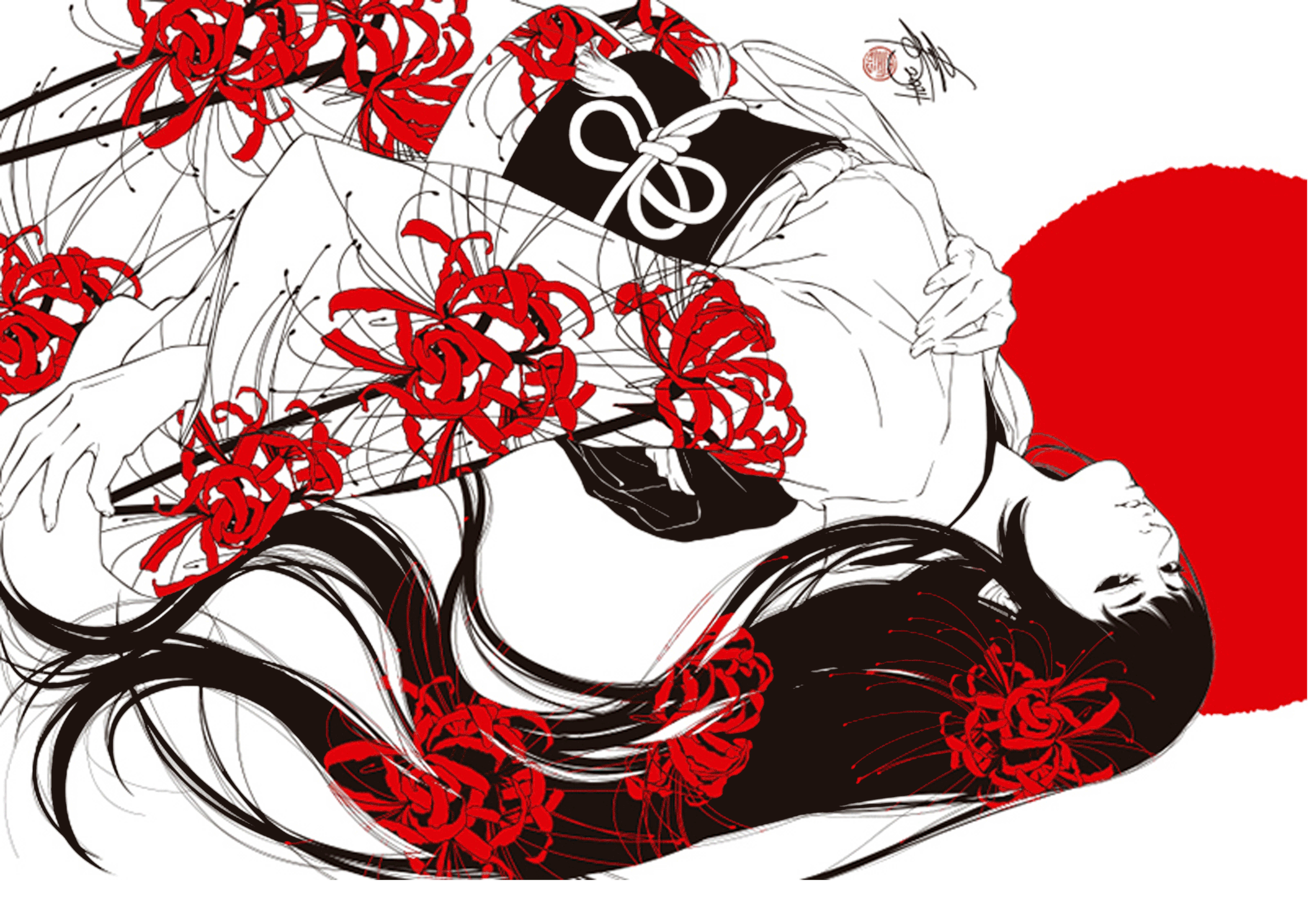After New Year’s you saw Akané less and less. She thought it was only because you were busy with your studies . . .
I was.
But that wasn’t the real reason you weren’t spending as much time with her anymore, was it, Peadar?
It was over.
For you, perhaps.
It was over, period. Nothing Akané could have said or done at that point would have changed my mind.
Nothing?
Nothing. I can be a stubborn bastard when I make up my mind.
Oh, I know all about that, Peadar . . . I’m curious, though, why were you so eager to marry Haruka?
It wasn’t so much eagerness as inevitability.
Inevitability?
We had been together for two years, the longest, most stable relationship I’d had with any woman, Japanese or American, a relationship which had endured infidelity and other venial sins. And, after we’d been together for a year and a half, Haruka went to a famous fortune-teller in town to ask her about me. The woman said ours was a kusaré-en.[1]
Meaning?
Meaning that, for better or worse, we would be hopelessly stuck with each other for many years to come.
Sounds as though the fortune-teller hit the nail on the head.
Squarely. Haruka and I went on a trip to Okinawa in March and it was there as we were walking on the beach on our final evening that I proposed. I’d had butterflies in my stomach all day. And a voice in my head kept asking, “You really want to go through with this, Peadar? Do you really want to spend the ‘rest’ of your life with this woman? Do you really want to start a family with this woman?”
And you didn’t have an answer for me, did you?
Haruka and I sat down on a big chunk of white coral and watched in silence as the sun slowly set. After a while I said, “Haruka, do you love me?” And she nodded. And I said, “Do you want to marry me?” And she nodded again. So, I said, “Well, then, let’s get married then.” And she started to cry.
Did you ever love Haruka?
I don’t know . . . I always liked her. I respected her an awful lot. I still do. In spite of everything that happened, I still do like her a lot. But love? What the fuck is “love” anyways?
“Love is a many-splendoured thing 〜♪”
Ugh! I’ll tell you what love is: it’s an autoimmune disease that eats at you, making weak. You’re never more vulnerable than when you are head-over-heels in love with someone. That’s how I was with Mié and what did it do for me? It crushed me. I wanted to die. That’s love for you.
It doesn’t always have to be that way, Peadar.
[1] Kusaré-en (腐れ縁, くされえん) is an unfortunate, but inescapable relation, a fatal bond.
A Woman's Hand and other works are available in e-book form and paperback at Amazon.
